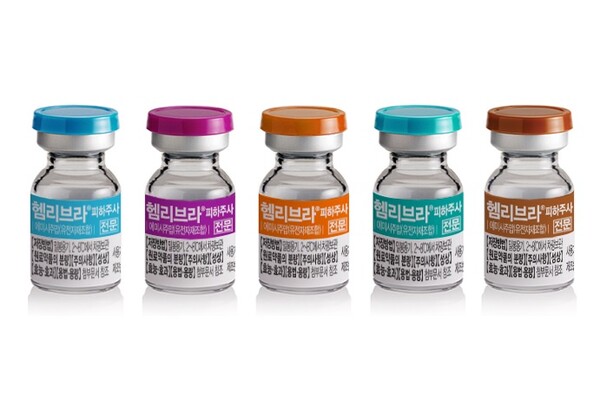JW Pharmaceuticals announced on Tuesday that interim results from a study showcasing the efficacy and safety of Hemlibra (emicizumab) in hemophilia A patients younger than one year old were recently published in the international journal Blood.
Dr. Steven Pipe, professor of pediatrics at the University of Michigan, and colleagues are conducting a seven-year long-term follow-up study (HAVEN 7) of 55 patients with non-antibody severe hemophilia A under the age of one who received Hemlibra. The team announced interim results after 100.3 weeks of study starting in February 2021.

According to the pre-study survey, the average age at enrollment was four months, and 36 patients experienced bleeding. Of the 77 bleeding events, 25 were spontaneous, and 19 were traumatic. The other 33 were procedural and surgical bleeding.
The team administered Hemlibra to patients once a week for the initial four weeks, followed by biweekly treatments for 52 weeks, while monitoring the occurrence of bleeds and adverse events.
The results showed that 42 bleeding events requiring medical attention occurred in 25 patients during the Hemlibra treatment period. All were traumatic bleeds, and no spontaneous bleeds occurred.
"Spontaneous bleeding is a serious bleeding event in people with hemophilia," Professor Pipe said. “The lack of spontaneous bleeding after treatment with Hemlibra demonstrates that the primary goal of prophylaxis was achieved."
In terms of safety, no adverse events were found that led to discontinuation of Hemlibra or a change in treatment.
"The data is significant in that it confirms the efficacy and safety of Hemlibra in patients with hemophilia A under the age of one," a JW Pharmaceutical official said. "We hope that patients with hemophilia A under the age of one will also benefit from this study."
Hemlibra is a treatment that mimics factor 8, a blood clotting factor deficient in people with hemophilia. It can be used by antibody and non-antibody patients resistant to existing treatments (factor 8 agents).
In May last year, health insurance coverage was expanded to include non-antibody severe hemophilia A patients aged one and over.
Related articles
- JW Pharmaceutical's operating profit jumps 58% in 2023
- Hemlibra’s post-dose bleeding frequency study published in international journal
- Hemlibra reduces bleeding and joint pain while improving mobility
- [ASH 2023] Blood disorder innovators highlight latest progress at US meet
- JW Pharmaceutical’s Hemlibra improves young hemophilia patients’ joint health
- ‘Goal of treating hemophilia is to normalize life like a non-patient’

